For Worldwide LAM Awareness Month (WWLAM) 2021, we’re sharing stories from women who were diagnosed within the past year. These women faced a life-changing diagnosis during one of the most difficult years in history. Though their individual stories are unique, they share a sense of fortitude and a strong commitment to the LAM community.
Meagan, a 30-year-old from Port Allegany, PA, shares how the support of the LAM community has helped her during this time and how being your own advocate can be life-saving.
I was diagnosed with LAM in July of 2020. I didn’t know it at the time, but my LAM symptoms started during my first pregnancy. I experienced some shortness of breath that I associated with pregnancy, which I figured would get better after delivery. When Brielle was born, I did see some improvement. I started exercising again but could never really get back to full workouts without taking a break or two.
The activity that made me seek further medical attention was the inability to carry my daughter to the babysitter’s without getting short of breath. It was a short distance and a few stairs. At that point, I contacted my provider and explained what was going on. The outcome? I was prescribed an albuterol inhaler and told I had pregnancy-induced asthma. I had never had any issues with breathing or asthma in the past. Something felt off to me.
I did not pick up the albuterol and asked the provider to investigate this further. I was scheduled for an echocardiogram of my heart. It was fine. At that point, I was told to restart my exercise regimen to build up endurance. I started out slow and my tolerance did build. I was satisfied with the result, so of course in typical nurse fashion, I did not seek further advice from my provider.
Fast forward about four months and workouts were getting harder instead of easier with a need for multiple breaks. Much to my surprise I was pregnant again! Increased shortness of breath was surely noticeable this time. When getting dressed started to cause breathlessness, I requested to be referred to a pulmonologist. But there was only so much that could be done due to my pregnancy. A limited pulmonary function test showed an obstructive process but no other testing could be done until after my pregnancy.
My next pulmonology appointment was scheduled for about 3 months after delivery of Allie. Then came COVID-19, which put the world on hold… visits became virtual and pulmonary testing was paused for months. When I was able to return in May, my pulmonologist ordered a repeat PFT, which continued to show an obstructive process. This led to the CT scan of my chest… and my first encounter with the word “lymphangioleiomyomatosis.”
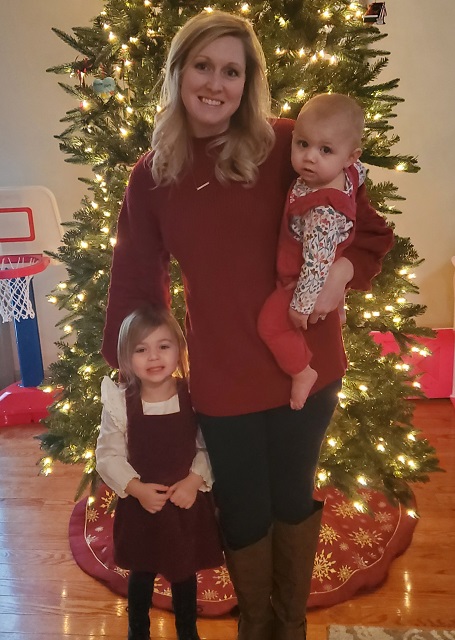
I had the opportunity (if that’s what you want to call it) to view the report before my pulmonologist. Don’t get me wrong, patient portals are great for accessing health information, but probably not in this case… Of course, I instantly Googled “lymphangioleiomyomatosis”. Terrible idea. There is a reason we tell our patients not to do it. I pretty much placed myself in palliative care right then, increased my life insurance policy, started talking about advance directives. I’m a nurse… When phrases like “chronic, progressive lung disease, “life expectancy of 10 years,” and “lung transplant” show up, it’s not usually a good thing. About a week later, I met with my pulmonologist who gave me the official diagnosis, along with a VEGF-D level… which was elevated.
People often ask me how I am handling my diagnosis. Am I scared about the future? The strongest feeling that I have toward my diagnosis is frustration, not fear or sadness. Frustration that I have to take the elevator because I cannot climb a set of stairs without feeling like a fish out of water. Frustration that simple activities are getting more difficult. Frustration that there is not a cure, only medication to potentially slow the progression. But most of all, frustration that when my 3-year-old asked me to race in the backyard, my husband had to tell her that I couldn’t.
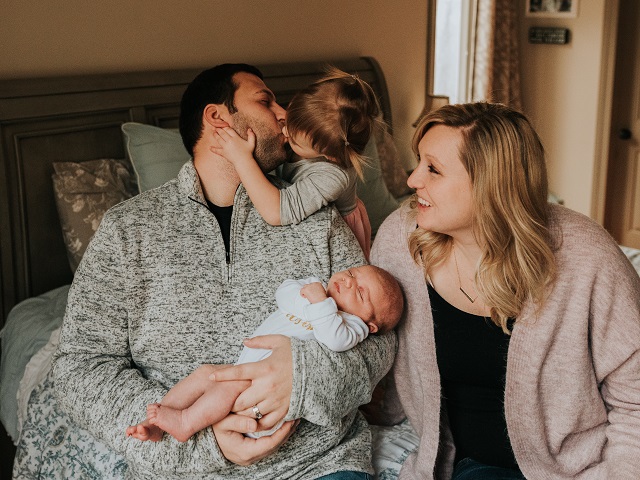
With frustration has also come support. I have discovered a strong community of other women experiencing LAM through The LAM Foundation as well as Facebook groups. Shortly after I registered with The LAM Foundation, I was contacted by a LAM liaison who helped me quickly get scheduled with a LAM specialist at WVU Medicine. Being a part of this community has given me the opportunity to read the accounts of other women diagnosed with LAM and their journey. It has been so helpful to get the perspectives of others experiencing different stages of the disease and how they make the most of it.
I can recall a recent post that asked the group to respond with the age in which they were diagnosed with LAM and how old they are now. That post generated so much positive feedback that helped both me and my family realize that advances in LAM research has come a long way from what pops up in the Google search, advancing and improving each day.
If I can offer any advice to someone facing a difficult diagnosis, it would be to advocate for yourself, allow people to support you, and appreciate everything. When you feel that something is not right, don’t be afraid to question it. Advocating for myself meant the difference between writing off my symptoms as asthma and reaching the appropriate diagnosis and beginning treatment. You do not have to do it alone. A whole support system is standing beside you if you let them in. Lastly, appreciate everything. It may sound cliché, but you never really know the details of tomorrow.
Author Bio
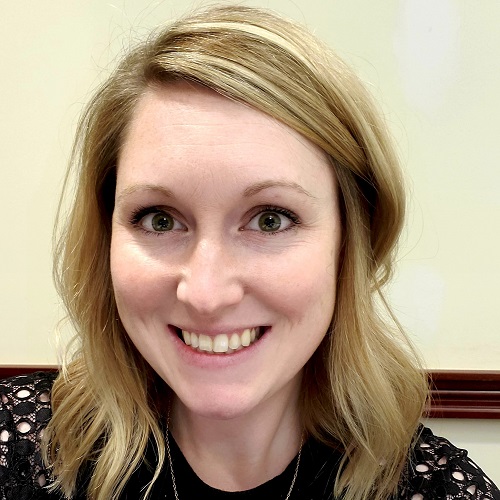
Meagan is 30 (almost 31) and lives in Pennsylvania with her husband, Chad, and two daughters, Brielle (3) and Allison (1), who keep them on their toes. She is a registered nurse in home health and hospice. Bringing services to patients so they can remain independent in their home has always been an interest since nursing school. Meagan is the director of clinical operations for an agency at UPMC and is taking classes towards her BSN.
<< Read more inspiring stories from women with LAM for WWLAM 2021 >>

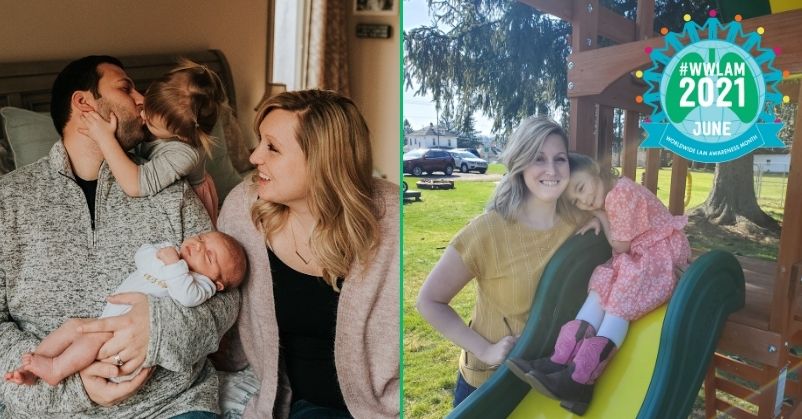
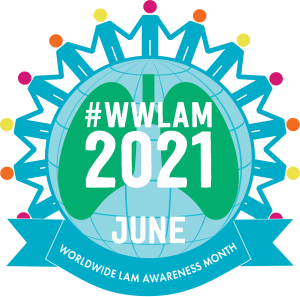
Megan, it saddened me to read your story as I did not realize you have been fighting this awful disease. I can only pray that they may find a cure for you, your family and the many other woman that face this disease. Love and prayers!❤🙏🏼